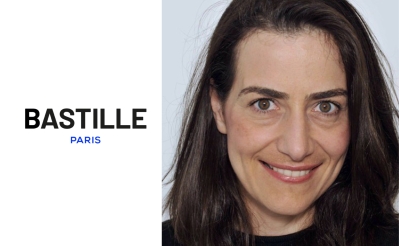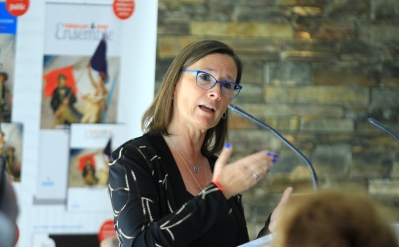News
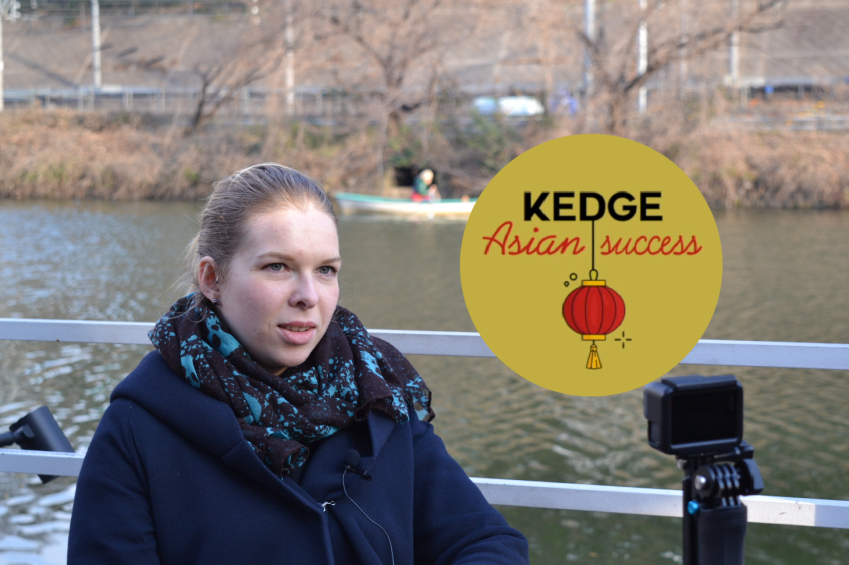
Meet Milena Osika, a KEDGE Alumna living in Tokyo
Meet Milena Osika, who has been living as an expat in Tokyo for three years now and is currently working as a Manager at Amaris, an international consulting company created in 2007 that specialises in technology and management and that has more than 60 of
She is a well known figure in the Alumni Network in Tokyo, whom the three students from the KEDGE Asian Success project met with. The manager of the local KEDGE KEDGE Alumni branch, Milena Osika answered Romane, Cyril and Maud's questions while they were visiting the Japanese capital. Here is a chance to learn more about this KEDGE Business School Alumna, who has been living in Japan for three years already.
Hello, Milena! To begin with, can you tell us about your educational background: what did you study before, at, and after KEDGE?
After obtaining my bac, I went to an economics prep school in the Paris region. Afterwards, I joined the ESC programme at KEDGE, so a general education programme. I was mostly interested in marketing, negotiations, and sales. I was also part of the student culinary association at KEDGE Marseille, Com’le Chef, in the partnerships department and then as President. I graduated in 2013 after doing a work-study programme at the Société Générale bank.
Can you tell us about your decision to move to Tokyo, Japan?
It all came from the fact that I participated in a four-month exchange programme at Nagoya (NUCB Business School - Japan) during my first year at Kedge. I was already passionate about Japan, but I really decided to move here after the exchange programme. As soon as I stepped foot in the country, I felt good here; the lifestyle really won me over. Even though I wasn't ready to come back the following year, I knew it was where I wanted to live. Afterwards, I did a VIE programme in Poland for a year. And then I came back to Japan to study the language; I have been in Tokyo for three years now.
Can you tell us about how you approached the job market when you arrived in Tokyo and what you are doing now?
I left with a work-travel visa. While preparing for my trip, I applied for a few jobs on LinkedIn, even though I knew my chances were slim without being in the country. I applied in one click with Unigroup, a relocation company, and had a Skype interview, then a phone interview, then a final meeting when I arrived in the country. The fact that I had a visa and that I already spoke some Japanese (level two) before I got here, made things easier.
In October 2016, I was then hired by the company Amaris, where I work as a manager. I built the office in Tokyo "from scratch", so I guess you can say I am an office or country manager.
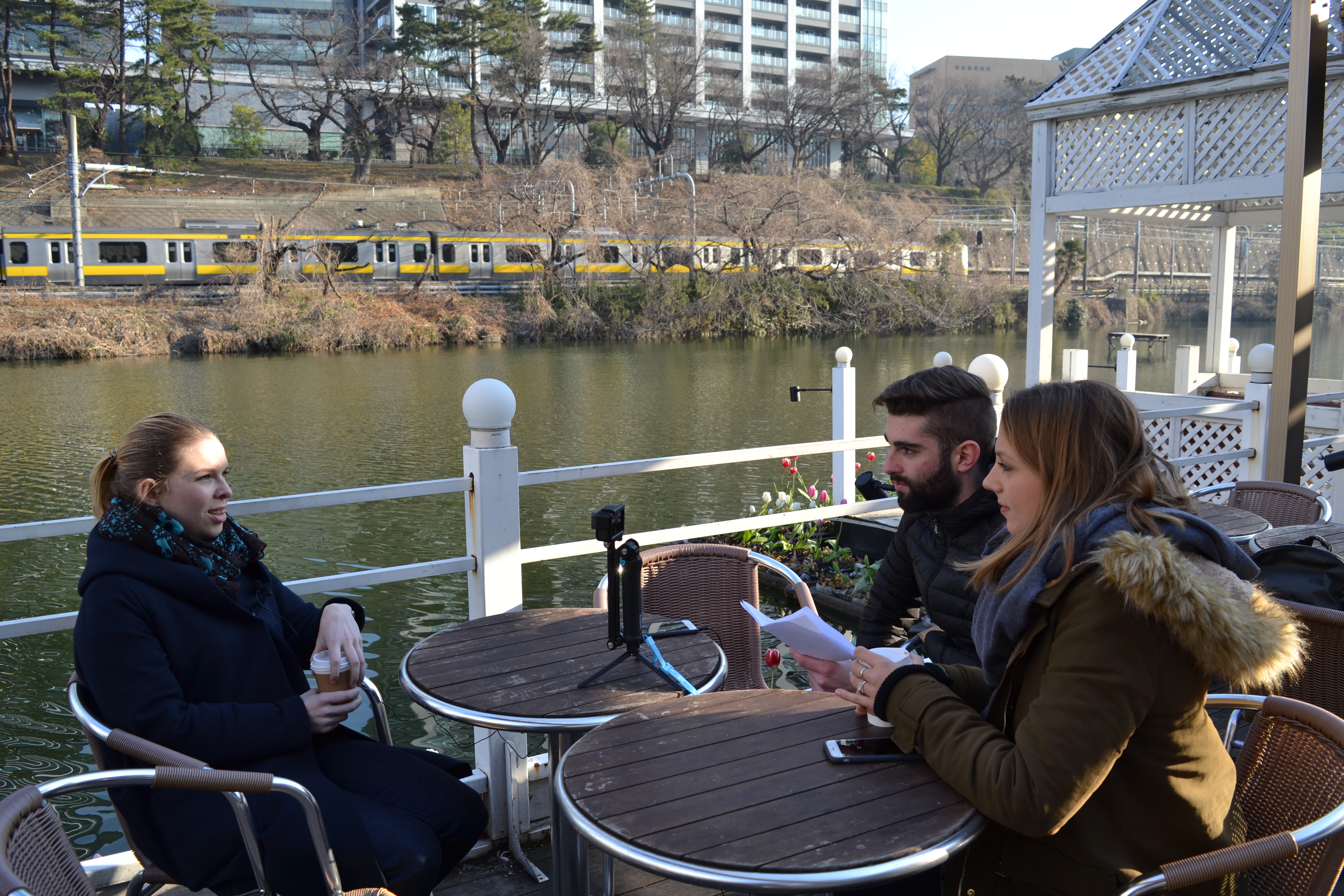
The students from the pro-act KAS conducting their interview
What are your goals for the future?
On the professional side? I have a five year vision at least. First, I have to grow my office in Tokyo. In Japan, there are a lot of things to do on the business side, especially in consulting. In Tokyo and Yokohama, there are a lot of industries, not just in IT, but also automobile, pharmaceutical, etc.
My objective is therefore to develop the office in Tokyo and then open an office in Nagoya, before expanding to Osaka and Kobe possibly in the future.
What are the main cultural differences you have noticed between the professional world in France and Japon?
I would say the "work-life balance" and productivity. In France, we distinguish more between the professional and private life; work is one thing and your private lige in another, but both are important. In Japan on the other hand, more importance is given to work and that impacts productivity. Indeed, it isn't as high as in France because people get tired, it shows in the statistics, and everyday at work. 
How did your time at KEDGE help you develop and realise your projects?
I chose KEDGE because I was attracted to the Pro-Act, which was really oriented towards entrepreneurship. I have always wanted to start something on my own, and that shows in my background. The Pro-Acts provide enough autonomy to realise any project.
When I was at the Com’le chef, I was able to start projects on my own, and now I am an entrepreneur in my current position, because I built the office from A to Z. I continue to be an entrepreneur, and KEDGE is a good school for that.
On a personal note, before moving abroad, did you have any apprehensions?
No, I didn't have any. I love France and I love my family, but I really wanted to leave, I don't know. It is probably related to Japan and the fact that I had lived here as an exchange student, it was so interesting. I just wanted to leave to continue the challenge and I knew it was a country I felt good in. I had friends here, which I think is important, I had contacts, I knew someone that had a share house, so I knew I had somewhere to sleep and someone to call in case I had any problems. My parents were reassured when I left.
Before leaving, I laid the groundwork, on LinkedIn I sent a mass e-email to all of the French people living in Tokyo. "Hello, I just moved here, and I am French, I would love to know more about your experiences, exchange ideas, get a coffee, etc." So I was able to meet quite a few people who were able to give me information about the job market, and once I got here, it all worked out.
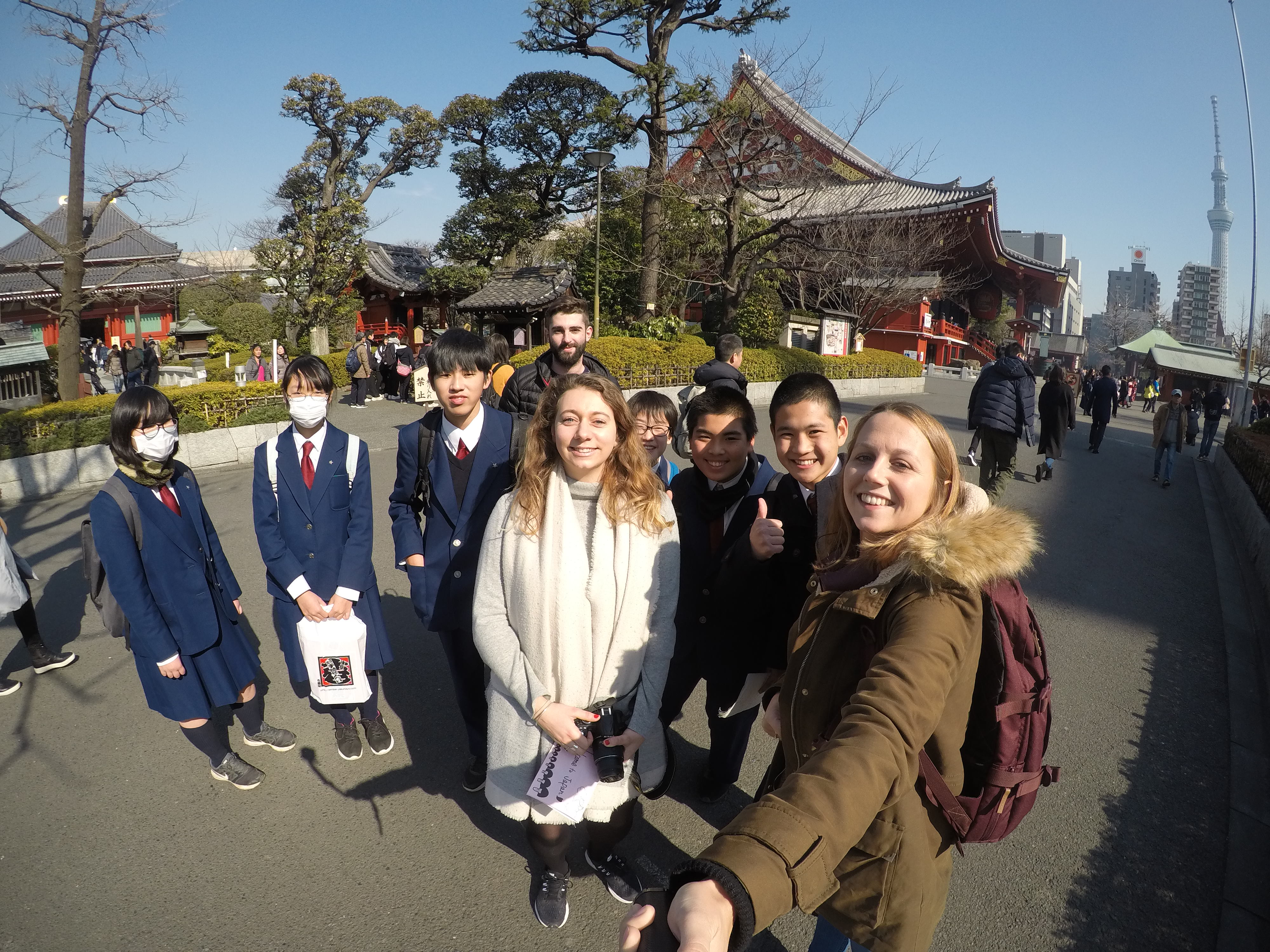
Pro-act KAS students in the streets of Tokyo
If you had one piece of advice for Kedge students who want to move to Japan, what would it be?
Learn Japanese (laughs). Make an effort with the language, don't be afraid, and don't have any barriers. The French and International network is well developed, and there is a lot of mutual support. The Chamber of Commerce is very active, there are a lot of French networks here. It will be fine!
What did Japan bring you that you would never be able to get in France?
Security, freedom, and peace of mind. I can set my bag down because I know no one will ever come and steal it. In fact, the peace of mind helps me stay focused on other things, building a network, and not coming across fake people. It takes away the stress, you can go out late at night and you won't be bothered in the street, it allows you to stay focused on your professional environment.
But also opportunities because I am French. The Japanese love the French, I don't know why: Sylvie Vartan, la tour Eiffel, les macarons, c’est fantastique (laughs). As a French woman, everything always goes well, there is no racism towards us. In the end, the Japanese are always interested in talking to the French. It's more of an opportunity to be a foreigner in Japan, it attracts curiosity, and the Japanese are happy to do business with us.
Photo of the Kedger meet up in Tokyo on February 7
MORE INFORMATION ON THE BRANCH FACEBOOK GROUP LINKEDIN GROUP
How did you become an Alumni Ambassador in Tokyo and what is the goal of the Alumni Afterwork?
I saw the Kedge Alumni in Tokyo Facebook group and noticed that there wasn't anyone in the branch. I had always been a part of the French and American Chambers of Commerce through my previous job, and in my current job I wasn't part of a network. It is always good to be part of a KEDGE community, and a good means, it provides a good opportunity to meet people in Tokyo.
We organise an afterwork every three to four months. There isn't really a specific goal, just to have a good time, and then we will see what happens. It can be professional, to help people find a job, help people manage the stress of living in the Japanese society. We complain among French people, we grumble, it helps us relax (laughs). It also helps integrate those who have just arrived, and it is reassuring.
The network also provides an opportunity to exchange points of view on the fusion between Bordeaux and Marseille. And we learn from those from Bordeaux, and they learn from those from Marseille, we exchange vocabulary like "Gavé" and "Tarpin" (laughs), "chocolatine" and "pain au chocolat", it's the clash of regions but in Tokyo.
Interview conducted in by the Kedge Asian Success team, composed of Romane Clerc, Cyril Colliot and Maud Ribaucourt.
MORE INFORMATION ON KAS AND THEIR NEXT DESTINATION

Maud, Cyril and Romane, project KAS initiators.



